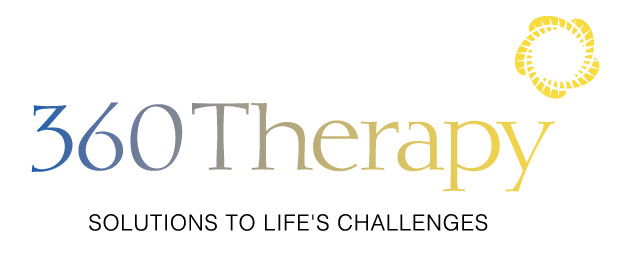Sex and Gender Counseling
 360 Therapy can provide valuable help for individuals and couples dealing with the
360 Therapy can provide valuable help for individuals and couples dealing with the
sensitive problems and concerns related to sex and intimacy, as well as sexual or gender identity.
Within its manual of psychiatric disorders, The American Psychiatric Association has organized the wide range of sexual issues into four main categories:
Sexual Desire Disorders — Most commonly, this refers to the lack of interest in sexual activity. The individual may have lost the desire for sexual intimacy with a partner or with sex in general.
Arousal Disorders — The desire for sexual intimacy exists, but the individual experiences difficulty maintaining the physical ability to engage in intercourse. This is commonly known as impotence in men, and female sexual arousal disorder in women.
Orgasm Disorders — The unwanted, excessive delay in reaching sexual climax. In men, premature or early ejaculation may also be considered an orgasm disorder. Although there is no definitive length of time, experts in the mental health field consider “premature” to range from fifteen seconds to one minute, which is generally found to be insufficient time for a woman to reach orgasm during intercourse.
Pain Disorders — The experience of physical pain during sexual intercourse. This classification refers to women who experience vaginal pain. However, for several reasons, men may also experience discomfort and pain while engaging in sex or specifically during orgasm.
Problems with sexual relations and sexual function are often due to a combination of biological, psychological, and social factors, including the normal aging process, physical illness such as diabetes, the day-to-day stress of work and family life, and the side effects of medication. Added to this is the common concern of internet pornography abuse and addiction.
Very often, 360 Therapists will work with both partners, leveraging their partnership to overcome challenges and resolve issues related to sex and intimacy. Whether for individuals or couples, 360 Therapy provides a safe, comfortable environment for discussing and resolving sexual matters.
Gender counseling can help anyone questioning and exploring their gender identity, feeling uncomfortable with aspects of their gender, or seeking gender-affirming interventions. Contrary to popular belief, you don’t have to identify in a way other than cisgender to reap the benefits of gender therapy.
Gender therapy focuses on the social, mental, emotional, and physical needs of those who:
- are questioning (their biological — or cis) gender
- are experiencing gender dysphoria
- are seeking gender-affirming interventions
You don’t have to identify as something other than cisgender to benefit from gender therapy.
It can be helpful for anyone who:
- feels confined by traditional gender roles or stereotypes
- wants to develop a deeper understanding of who they are
- wants to develop a deeper connection to their body
The therapists at 360 Therapy seek out continuing education, training, and professional consultation in the areas of:
- gender identity
- gender diversity, including nonbinary identities
- gender dysphoria
- medical and nonmedical gender-affirming interventions
- transgender rights
- navigating gender in all aspects of life
- relevant research and news on these topics
Individuals and couples who self-identify as Lesbian, Gay, Bisexual, Transgender or Queer (LGBTQ) face challenges that are unique to this community. These include issues regarding personal relationships and family of origin, self-acceptance, and identity, as well as social justice and discrimination. 360 Therapists have the necessary training, experience and understanding to provide the provide the culturally sensitive counseling required by LGBTQ clientele.
